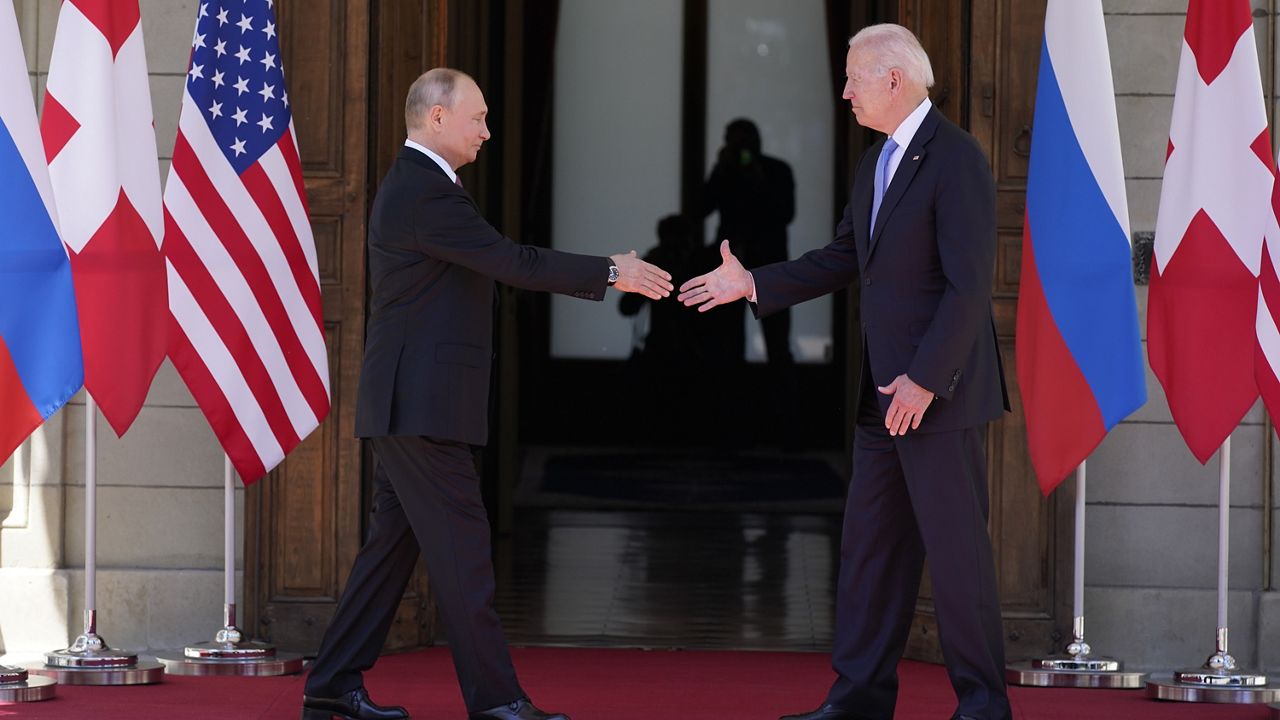President Joe Biden spoke by phone Friday with Russian President Vladimir Putin, where he communicated to the Russian leader that he must “take action” against cyber criminals launching a spate of crippling ransomware attacks on U.S. companies.
What You Need To Know
- President Joe Biden told Russian President Vladimir Putin in a phone call Friday that he must “take action” against cybercriminals launching a spate of crippling ransomware attacks on U.S. companies, the White House said
- The conversation comes less than one month after the two leaders met face-to-face in Geneva, where Biden said Russia would face “consequences” if it continued to harbor known cybercriminals or attack 16 areas of critical U.S. infrastructure
- Last week, hackers from the Russian-based criminal group REvil breached the systems of a major software supplier, paralyzing some 200 U.S. companies, cybersecurity analysts said
In his call with the Russian leader, Biden "underscored the need for Russia to take action to disrupt ransomware groups operating in Russia and emphasized that he is committed to continued engagement on the broader threat posed by ransomware," the White House said in a statement.
“President Biden reiterated that the United States will take any necessary action to defend its people and its critical infrastructure in the face of this continuing challenge,” the White House added.
The conversation comes less than one month after the two leaders met face-to-face in Geneva, where Biden warned that Russia would face “consequences” if it continued to harbor known cybercriminals or attack 16 areas of critical U.S. infrastructure.
Then, last week, a ransomware attack linked to the Russian-based criminal group REvil breached the systems of a major software supplier, paralyzing some 1,500 companies worldwide, including 200 operating in the U.S. It is the largest known ransomware attack to date.
The scope and timing of the attack, which came just weeks after the Geneva summit, has roiled some critics and increased calls for the Biden administration to retaliate. It also underscored the extent to which ransomware attacks have ballooned into one of the most urgent national security challenges for the current administration.
“Ransomware has shifted from being an economic nuisance, say, eight years ago, [when] it was something that impacted individual computers, and ransoms were a couple hundred bucks,” Michael Daniel, president and CEO of the Cyber Threat Alliance and former White House cyber coordinator told Spectrum News last month. “Now, of course, ransomware is affecting entire corporate networks, and critical infrastructure. It’s disrupting these operations, and payments are into the billions.”
What we're seeing now "is a profoundly different kind of threat,” Daniel added. “It's a national security threat, an economic prosperity threat, a public health and a safety threat.”
Last week's attacks also raised fresh questions on how the U.S. might respond in the future, should Putin continue to disregard his pledge to work with the U.S. to prosecute Russian-based hackers.
“I made it very clear to him that the United States expects when a ransomware operation is coming from his soil, even though it’s not sponsored by the state, we expect them to act if we give them enough information to act,” Biden said Friday, speaking to reporters at an event on economic competition.
Asked whether there will be consequences, Biden simply replied, “Yes.” .
A senior administration official, speaking on the condition of anonymity, confirmed Friday that the White House has “relayed multiple specific requests for action on cyber criminals” to Moscow – but said only “time will tell” whether Putin will make good on that pledge.
“We’re not going to telegraph what those actions will be precisely,” this person said. “Some of them will be manifest and visible, some of them may not be. But we expect those take place in the days and weeks ahead.”
“I don’t think anyone expects us to preview our punches,” Psaki told reporters Friday.
Still, White House officials stressed that any measurable progress in U.S.-Russia relations will not happen overnight -- saying it will likely be a matter of “months” before the U.S. can accurately determine how – or if – Moscow plans to crack down on hacking groups operating from inside its borders.
Biden told reporters Friday that the U.S. and Russia have “set up a means of communication now on a regular basis to be able to communicate with one another when each of us thinks something is happening in another country that affects the home country."
Overall, Biden said the call with Putin "went well." "I'm optimistic," he said.
President Biden “believes strongly in this type of leader-level engagement,” a White House official said of his call with Putin.
“We engage in this type of diplomacy, not because we agree often, or all the time, but precisely because we have these disagreements in so many areas, including this one," they added.
